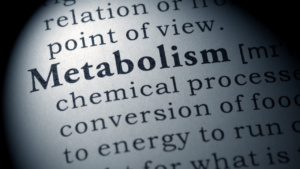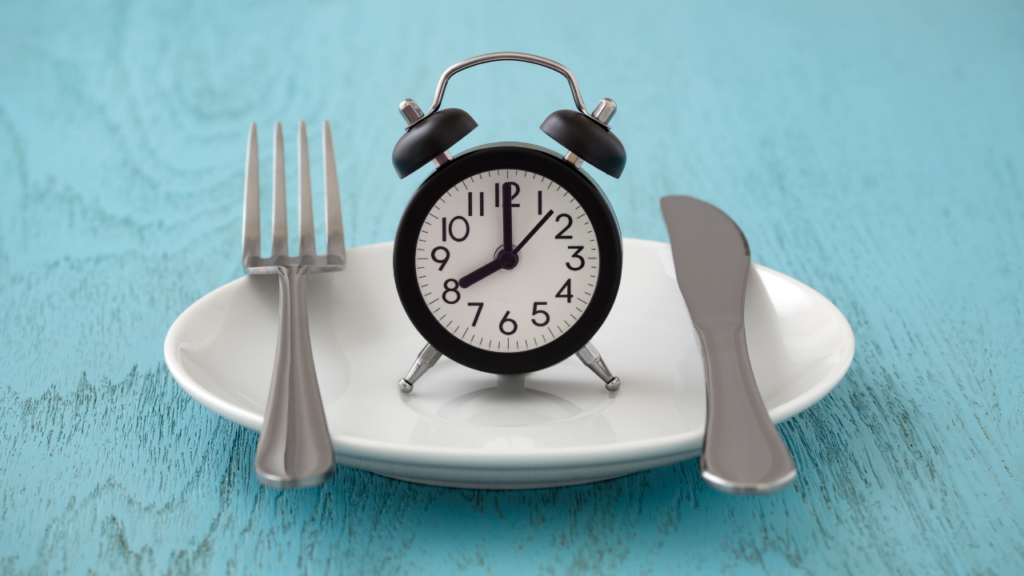What is Intermittent Fasting?
Time Restricted Feeding or TRF. Let me tell you about it! I mean, technically, it is a form of Intermittent Fasting (IF). You know, the diet where millennials made skipping breakfast cool? Ya, that was my generation. For those of you who do not know about IF, it is basically a method of eating where you alternate between fasting and eating periods. Hence the title, intermittent fasting or intermittent eating, but the latter does not sound nearly as cool – which my generation places in high regard.
There are multiple approaches to IF; however, the most common method peddled by the social media gurus is some version of 16:8 or fasting for 16-hours and having an 8-hour eating window with extended fasts dispersed throughout the week. Their reason: stuff and lack of science that demonstrates only theoretical benefit. Apparently, that is all that we need to sell a product that does not actually work. The 16:8 is a version of TRF.
Now, most gurus recommend skipping breakfast and not eating until 12pm or later, depending on how brazen you want to be with your fasting period. Now I am not opposed to any particular diet. If you believe IF will work or does work for you and you can sustain it long term, then amazing, go for it – and I will go catch a chicken.
However, I want to tell you about a little study showing that TRF may be doing more harm than good.
What Study Was Conducted?
Sutton et al. did a fascinating first-of-its-kind study on EARLY TRF, or consuming one’s daily calories earlier in the day and fasting from afternoon till the following morning. This study was done to align with humans’ natural circadian rhythms in metabolism and may be more beneficial.
 Our circadian system up-regulates and down-regulates our metabolism at different times throughout the day. Our metabolism or ability to manage nutrients is better in the morning vs. afternoon and evening! Furthermore, studies with late TRF or eating your calories after 4pm have either shown no results (no benefit or issue) or shown worsened blood glucose levels, blood pressure, and lipids.
Our circadian system up-regulates and down-regulates our metabolism at different times throughout the day. Our metabolism or ability to manage nutrients is better in the morning vs. afternoon and evening! Furthermore, studies with late TRF or eating your calories after 4pm have either shown no results (no benefit or issue) or shown worsened blood glucose levels, blood pressure, and lipids.
Now, the benefits of IF have primarily been attributed to weight-loss and not some kind of magical wizardry the diet possesses. But, when it comes to TRF, eating earlier in the day could have some extra benefit.
So what did Sutton and friends do?!
They did a 5-week, randomized, crossover, isocaloric and eucaloric controlled feeding trial testing early TRF in men with pre-diabetes. In English – this was a 5-week trial where men who almost have diabetes were randomly assigned to two groups. One group had an early TRF schedule in which their eating window was 6 hours long, and they had to have dinner before 3pm. The other group was assigned to a control schedule where they could consume their daily calories within a 12-hour eating period. After five weeks, both groups took a break and were then switched to the other group scheduled for another five weeks.
 The participants were only allowed to eat food provided by the study staff, and they were provided with enough food to maintain their current weight. The study wanted to eliminate weight-loss as a potential confounder in any benefits that might be seen. (Side note: No wonder scientists use big words packed with meaning. It isn’t to confuse! It is to eliminate carpal tunnel from typing so many words.)
The participants were only allowed to eat food provided by the study staff, and they were provided with enough food to maintain their current weight. The study wanted to eliminate weight-loss as a potential confounder in any benefits that might be seen. (Side note: No wonder scientists use big words packed with meaning. It isn’t to confuse! It is to eliminate carpal tunnel from typing so many words.)
This was a small trial with only eight men, which makes sense as not only did the study staff have to provide participants with their food, but all participants had to be observed consuming said food by study staff. Talk about expensive and a royal pain in the ass. My grocery bill for a month is ~$400-500 to maintain my weight. Yes, I am aware I eat enough to feed a small family.
What Does This Mean For Intermittent Fasting aka Time Restricted Feeding?

What did they find?!
Early TRF reduced insulin production, improved insulin sensitivity, improved beta-cell responsiveness (the cells that produce insulin), lowered blood pressure, oxidative stress, and decreased one’s appetite in the evening. There was no change in cholesterol levels nor a reduction in blood sugar levels. But, guess what? No one lost weight. So hey, another point to the column that IF does absolutely nothing special for weight-loss – you still need to have a calorie deficit! I do enjoy being right…
Now, something we need to keep in mind: this study was five weeks long and involved only eight men. Had the trial gone on longer, would we have seen more impressive outcomes? Like, a drop in blood sugar or a reversal of pre-diabetes altogether? Maybe?
Adherence and consistency would be the two biggest barriers to a more extended study. Eating your dinner at 3’oclock in the afternoon isn’t really conducive to family bonding time or romantic dinners with your partner. Although, by getting to dinner at 3pm, you might beat out most seniors and score the early, early bird special. However, I do not foresee too many ‘happy endings’ happening after that late lunch.
What can we actually do with this information?
Well, this is a preliminary trial and really more data is needed, but it does reinforce the fact that our bodies are better able to handle and metabolize nutrients earlier in the day. So we should probably try to eat breakfast and more of our calories earlier in the day. As well, we don’t know if the same results would be seen if we extended the feeding window from 6-hours to say 10-hours and you stop eating at 6pm? Could we have dinner, a happy ending, and get the health benefits too? Possibly! It sounds like a win-win to me!
Final Thoughts
In conclusion, I am not saying you need to jump to eating breakfast every day or stop eating at a certain point in the day, but it might be something to take into consideration, at least until we have more data. If you are, for some reason, still hell-bent on trying IF, aim to have more calories and food earlier in the day vs. trying to be cool and skip breakfast. Not sure if you noticed, but the individuals who did so reported a decrease in appetite in the evening – which may help with weight loss!
Until next time my friends!
– Dr. Dan
Reference






